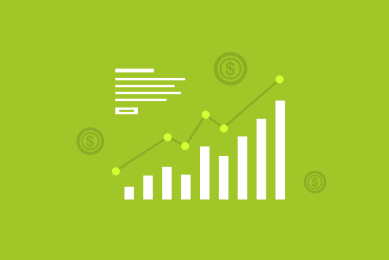
Search Engine Optimization & Marketing
SEO offers a visible and effective search presence, which leads to a considerable increase in sales, profitability, and cost efficiency for our clients.
Our search engine optimization assistance includes such core services as organic search, on-page SEO, link building, keyword research, competitor research, strategy, and activity reports.
Every so often, we come across the question - Is SEO Dead?
To those who ask, it appears that there is some confusion about what SEO is. Keep in mind that the letter "O" in SEO stands for "optimization." As long as anything imperfect exists, there will always be the need for optimization, for example, video optimization, aka "video editing," will always exist no matter what. Can you shoot a full 90-minute video without editing? Sure you can, but should you? (Comedian Chris Rock said "You could drive with your feet, but it doesn't mean it's a good idea!") Even if you did show an unedited video, would it be optimized for your trailer, reel, television, sound, titles, and credits? Of course not! Justin Bieber may be able to shoot a 90-minute un-optimized AKA "unedited" video on his iPhone and get it to air on NBC, but are you, Justin Bieber? Probably not. So would you be willing to forego a deal with NBC just because you don't feel editing/optimizing your video to their ever-changing quality control standards is worth it?
The statement "SEO is dead" is the same kind of silly comment that comes from people who brag about how well they’re doing without SEO, when in reality these people have no idea how much money is being left on the table. There is no "test" for that unless they were already in the number one organic spot on Google for their "money-making keyword (not their ‘vanity’ keyword) and realized that the profit margin was negative. Show me a company that went through the above scenario, and I'll show you a company that optimized for the wrong keyword.
It's 100% true that now SEO is about far more than just backlinks. True, SEO must be 90% about relevancy that translates into click-through-rates (a form of conversion). When this is not the case, SEO can leave a horrible taste in your mouth. Think of it as a cell phone with no signal or a dead battery.
The current definition of SEO has been bastardized by telemarketers promising incredible results for $99 per month, along with the 1,001 info products that teach a butchered up explanation of the technical side of SEO such as "Automated Backlinking" without a proper explanation of why Google considered backlinks important in the first place.
One of the worse stabs to the SEO industry are all of the info products that teach local businesses how to do SEO without even knowing how to achieve the results in the first place. Most of these weekend home-study crash courses are broken up in the following manner:
• 10% of the course teaches you how great the teacher is (the most entertaining portion of the training by far).
• 20% of the course (at best) teaches you actual SEO strategy, most of which is completely rehashed material.
• 70+% teaches you how to find clients to sell SEO services to, which has value to an SEO agency but little value to you.
Many of these SEO tutorials even come with proposals/contracts for students to give to all their new clients (aka ‘marks’) that have "reasonable efforts" clauses embedded in them to keep the eager beaver "SEO practitioner" out of legal trouble.
Might it be that the old perception of SEO is dead?
The question should never be, "Is SEO (or any other type of optimization) dead?" The real question is, "How long can your business survive without it?" Often forgotten is the fact that your competitor gets a vote on these types of issues. Yes, you may be doing just fine for now; however, if you take into account the law of exponential change, your competitor could slaughter you in no time by living on a 5% margin and dumping the other 95% on SEO, PPC, etc. (Do some homework on Hotels.com's marketing strategy.)
A competitor making a margin adjustment alone can give them far more customer volume, which equals more referrals, a much lower overhead per unit sold, and a more abundant supply of R and D funds, which can translate into more effective testing and more customer satisfaction, leading to devoted followers, etc. For an example of this check out the up-and-coming company called "Apple" at www.apple.com.
I don't care how much "experience" a marketing company has; ruling out any known source of quality traffic that's mostly based on targeted buyer intention can quickly end up being business suicide. As technology advances, the areas that marketing companies are experienced in matters quite a bit more than their experience in general. In today's fast-changing online market, a marketing company's experience could end up being your Achilles heel. Just ask some of the old school-minded PR firms and Yellow Pages sales reps. Many of these geniuses have decades of experience on us. Luckily for them, Target and Walmart are both currently looking for greeters with expertise in customer appreciation.
It's still amazing to hear people speaking, writing, and thinking as if SEO were some type of war with Google when that's not at all the case. SEO is a war, but it's a war with the owners of the websites from which we’re trying to get links, citations, mentions, social signals, endorsements, etc. For the most part, the more sites that point to you through any of these methods, the better you will end up ranking. Sure, the value of backlinks, meta tags, and page rank will constantly shift, and why shouldn't it?
Google, of course, wants to minimize the gaming of their algorithm, but without SEO, there would be no way Google could deliver accurate results to searchers. Google would not know the difference between "Blue Widget" and "Red T-Shirt." Disregarding SEO is like asking a blackjack dealer for another card when you're showing two face cards. You are almost guaranteed to throw yourself out of the game before you even have a chance to win.
Google has penalized sites for what they consider over-optimization, along with devaluing millions of backlinks sometimes to their demise. When Google first implemented their over-optimization penalties, many sites that brought them large sums of money through Adsense were totally deindexed, which in hindsight was probably the least of their concerns, since the majority of their revenue comes from large advertisers like eBay and Amazon.
What Google is most concerned about is the satisfaction of their real clients, and no, their real clients are not even big advertisers, even though they are responsible for the revenue. Google's true "client" is the online searcher, and Google tries everything in its power to satisfy this searcher to keep the searcher loyal and not feeling the need to go anywhere else for up-to-date and relevant search results. Google understands that upsetting and losing a few advertisers pales in comparison to losing market share with their actual clients. Google also understands that as long as they own 60-70% of this market share, there will always be an endless supply of advertisers, no matter how much Google "slaps" them.
The importance of your website’s pages being optimized is evident in Google's pay-per-click (PPC) model. Google Ads, aka Adwords, assigns a quality score to the keywords you bid on, and this is largely based on massive relevance, click-through rates (CTR), bounce rates, your page's metadata, etc. All of these factors help to determine your cost-per-click on a given keyword. It should be needless to say, but proper on-page SEO strategies based on relevance and conversion will always be necessary for cost-effective PPC campaigns, which is reason alone that SEO cannot die.
Google Adwords (now Google Ads) supposedly "died" for many online marketers after the famous Google slap, but what it actually did was separate the cream from the rest of the crop and ended up demolishing many members of the low end, price-slashing competition for us true players.
Any Google PPC expert can tell you that your bid amount is only one of many factors that land you on top of page one (paid results) for your desired keyword phrase. For Google to reach the next level of income, they must somehow prove to their searchers that their paid inclusions (ads at the top and bottom of the page) are at least, if not more, relevant than organic results. This is why we always keep hearing about Google slaps and sites being banned from Adwords. Google is not stupid; they refuse this income because they have data showing false claims, high bounce rates, and many other measures that prove these slapped and banned sites are not adding to searchers' trust-building experience.
The same goes for the copy in your Adwords ad. If your click-through rate is low, Google is wasting valuable page real estate displaying your ad, so they don’t care how much you bid. If there are too few clicks on your ad, you end up costing Google the opportunity to make money. More important to Google is the combination of bad CTRs and high bounce rates that cost them the greatly needed trust and credibility to influence searchers to click on the ads for the expected quality and relevant results. Because most searchers don’t trust the relevancy of Google's paid ads, the ratio between Google Ads clicks and organic clicks is horrendous. (Only between 10 to 15% of all clicks go to paid ads.)
If Google could achieve anywhere close to the same level of trust for paid inclusions that it has for organic results, we might all be competing for the #1 spot on page two. Seem unrealistic? Well, Google already tested a watered-down version of this hypothesis when they introduced the Google Places 10 Pack that quickly turned into the Google + Local 7 Pack, leaving as few as three spots in some cases for organic listings as most of us know them. For now, Google has reduced the local "Pack" to three results. Google verifies these listings by phone or mail and will sometimes have one of their "Google My Business" listing representatives call business owners to go over any discrepancies in contact and location details. .At the time of this writing, Google is not charging for these listings unless you want them enhanced, of course.
Many business owners have not yet drunk the SEO Kool-Aid cry about how much Google changes its algorithm, and I can't help but wonder what you would expect from a company that wants to deliver up-to-date quality results to their patrons. Of course, they are always changing and testing what might deliver efficient and satisfying results to their clients. Aren't you? What are they supposed to do? Sit back and wait for Facebook search to turn them into the next Myspace?
All marketing has changed and will continue to change as buying triggers evolve. The marketing vehicles themselves have changed, that is, the Ipad, apps, mobile, and even opt-in bait/incentives for actions taken. How many prospects are lining up waiting to be added to your "limited" e-newsletter for the mere cost of an email address nowadays?
Rapid change is about all that you can count on. Change is all that is left for the small to mid-sized company to combat the seemingly slower corporate world, which is gaining on us very quickly. Look at what Home Depot did to the local hardware store, what eBay did to the local used camera store, what Uber is doing to taxis, Airbnb to hotels, and Walmart … (Ok, enough!) Yes, some of these are older examples that we can all relate to but the point is do you remember how fast these changes happened? I barely remember the transitions.
Matt Cutts, former head of the Google webspam team, did his job, as usual, trying to scare people from doing too much SEO. Years ago, both the Panda update of February 24, 2011, and the Penguin update of April 24, 2012, also hit Google.com itself pretty hard. Google.com dropped to a page rank of 9 out of 10. By the way, page rank used to be a big deal when we could see it.
Not only did both the Panda and Penguin updates affect Google, but it also impacted numerous relevant Google affiliates in their Adsense program. Many believed that Google would eventually lift the penalizations and just not count the spammy PR 0 links that caused the penalties in the first place. Doing so would have theoretically ended the possibility of negative SEO and allowed the more relevant sites to rank. It makes a lot of sense because of how badly the quality of Google results ranked along with the Penguin update.
Few would disagree that irrelevant results are far worse than over-optimized sites because an over-optimized site typically has more of what searchers are looking for, as opposed to what we see rank after penalized sites are dropped or removed from the search index. With that said, Google only brought more penalties, such as the following:
• Hummingbird on August 22, 2013
• Pigeon on July 24, 2014
• Mobile-Friendly Update on April 21, 2015
• RankBrain on October 26, 2015
• Possum on September 1, 2016
• Fred on March 8, 2017
• Core Update on March 12, 2019
and the Core Update and Site Diversity Update on June 3–8, 2019 just to name a few of the more memorable ones.
As of this writing, it is still very possible to over-optimize your site, unfortunately, making it 100% plausible for unscrupulous competitors to deindex your site using automated backlinking tactics if precautions aren't taken. Amazingly, there is still debate over the ability to hurt a competitor's rankings. To that, I say do some entry-level research on a tool called the Disavow Tool that Google made to combat this genuine possibility.
Although Google continues to do a great job of defending itself from large groups of brilliant people attempting to reverse-engineer their search algorithm, there have been and still are tons of new opportunities for real SEO services to help businesses dominate page one of the organic rankings.
Organic Search
Development and targeted promotion of a truly remarkable content distribution strategy that fulfills your needs by achieving, improving, and maintaining the visibility of your web assets.
On-page SEO
We ensure that your content is easily accessible to search engines. Our team is ready to propose and implement the best solutions to boost your rankings and improve your visitor-to-buyer ratio.
Link Building
Another essential part of any successful SEO strategy is building your internal-link profile, which will add considerable weight to your page's keywords within search engines.
Search engine optimization is fundamental and essential to competing in today's attention-starved marketplace, and our SEO strategies will increase your ranking for targeted keywords in search engine results. We'll provide a full keyword ranking report, as well as a link-building profile report. Our team focuses on your targeted customer segments and ranks keywords that improve the buying traffic flow to pages on your website that speak directly to these individual personality types.
In many cases, for many businesses, SEO is not a simple complement to online marketing -- it is online marketing. We keep up-to-date with the very latest guidelines from all major search engines such as Google, Bing, Yahoo, and Yandex.
83%
Increase in Organic traffic
42%
Bounce Rate Down
38%
Average Visit Duration Increase
21%
Pages per Session Up
Keyword Research / Strategy
Foundational elements of successful SEO are target keywords. Let our team determine the keywords that have the best shot at increasing your bottom line. We do this using some of the most up-to-date SEO research and competitive analysis software on the market today.
Activity reports
We provide detailed results of your website SEO performance evaluation, as well as data on your traffic and top referring keywords, and a full breakdown of search engine activity.
Tell us about your project
Let us help you get your business online and grow it with passion
Our team of professional SEO experts are the perfect partners for a successful business relationship.
Testimonials
See all testimonialsWe looked at a lot of SEO solutions for website promotion but these guys were our clear favorite. They has the right strategy and they've been awesome to work with to boot.
Thanks to this amazing SEO company we have a constant flow of new leads. These guys gives us all the tools to convert those leads to customers.
Thank you for connecting with us.




